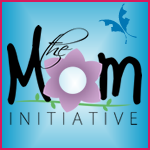
Comma, colon, semicolon, space, parenthesis, period.
Quotation mark, apostrophe, em dash, question mark.
Writers love to loathe the little things; editors loathe to leave them out. Proper punctuation clarifies communication. If writers want their readers to comprehend their messages, it is imperative to proof drafts.
Which of the following sentences is easier to read?
- Johnny Mr. Home Improvement tripped over the warped floorboard the bargain plank he got at the salvage yard and tumbled headlong down the rickety winding staircase.
-OR-
- Johnny—Mr. Home Improvement—tripped over the warped floorboard, the bargain plank he got at the salvage yard, and tumbled headlong down the rickety, winding staircase.
The first sentence is exhausting. It took me two tries to read it through aloud without tripping over one or more words. The second sentence contains em dashes and commas to break the flow and guide the reader through the text. When I read it aloud, I paused at the em dashes before continuing, with a brief hesitation at each comma. We utilize these techniques subconsciously when speaking but in writing they must be shown by utilizing punctuation marks.
I read post after post after post from literary agents, editors, and others in the industry who all agree on one thing: quality writing gets published. Why, just two days ago, agent
Chip MacGregor blogged about that very topic.
He said, “So the single best thing you can do in order to improve your chance of getting published is to
become a great writer.”
He also said in his January 3, 2010, blog post, “
I'm usually looking for great writing with a strong voice,” and said an author can get his attention “by showing me a big idea, expressed through great writing, supported by a strong platform.” I have to agree with him, “Do anything you can to
improve your writing...and you'll find you stand a much better chance of getting published
.” (Emphasis mine.)
Literary agent
Rachelle Gardner often gives similar advice. In a January 2008 blog post, she said, “One of the most common reasons for agent rejections is that the writer simply isn't ready: they haven't spent quite enough time mastering the craft of writing.” In August 2009, she suggests that writers who have more than one completed manuscript send “the one in which your writing shines the brightest.”
This entire post from May 19, 2009, is dedicated to learning the craft of writing.
When it comes to producing quality writing, the little things do matter. Read instructional books. Read books in your genre to learn from those who’ve already been published. Join a critique group. Attend writers’ conferences. Sharpen those skills and apply proper techniques and your novel idea may just become a best-selling novel.
In accordance with FTC Rule 16 CFR, Part 255, I am disclosing that I received no compensation for writing this post. What is this? See Michael Hyatt’s blog (for whose mention I received no compensation).
 For my home educating friends, Rosetta Stone, Heart of the Matter, and Fusefly have partnered to offer an incredible foreign language/foreign land opportunity for homeschoolers:
For my home educating friends, Rosetta Stone, Heart of the Matter, and Fusefly have partnered to offer an incredible foreign language/foreign land opportunity for homeschoolers:



















